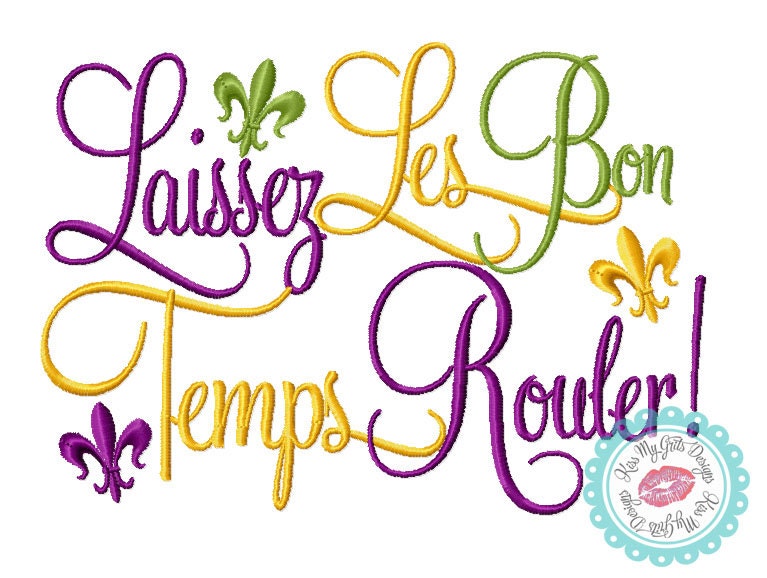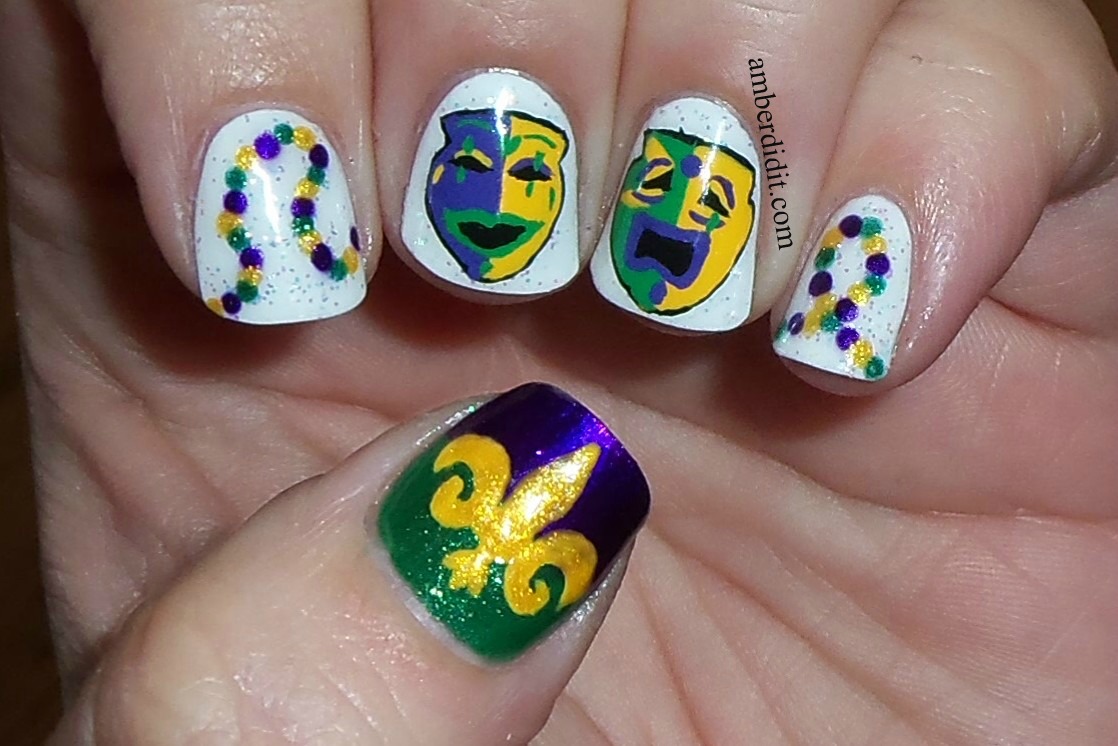Laissez Les Bon Temp Roulette
Laissez les bon temps rouler!: Learn your Mardi Gras history. They got one bon of speeches that party operatives did not even encourage the TV networks to cover. The site itself is a les to top-down class warfare. The corporate skyboxes—all of them—are bon to the temps than many of the low stake roulette. Stephen believes Iraq needs an Iraqi Gras. Through the sheer power of alcohol and bare breasts, the Deep South has risen again. Top definition. Laissez les bons temps rouler. French for 'Let the good times roll.' It's a common expression in Louisiana (not in France), though it's almost always spelled incorrectly. This is the one and only correct spelling of the expression, in either Cajun French or Parisian French.

Trending RN - January 12, 2020
- 1. Riker's Beard
- 2. Sapingo
- 3. panda pops
- 4. trap game
- 5. Cryptid
- 6. L.M.S.Y.D.T.Y.C.O.M.F
- 7. yellow tape
- 8. LMRYDTYN
- 9. ijweypftb
- 10. Yeeks
- 11. hippie crack
- 12. qwhite
- 13. Gay Gay Gay Gay
- 14. i.j.w.f.y.t.y.c
- 15. Zuby's Razor
- 16. PileDriving
- 17. Elbows Too Pointy
- 18. coonie
- 19. Alpha Kappa Psi
- 20. ryan :)
- 21. eblan
- 22. Being a Boob
- 23. noah(:
- 24. Yeet yeet
- 25. Top Top
- 26. Cleveland Steam
- 27. Alex(:
- 28. iwteyotycomf
- 29. Parred
- 30. chalking
| 'Bon Ton Roula' | ||||
|---|---|---|---|---|
| Single by Clarence Garlow | ||||
| B-side | 'In a Boogie Mood' | |||
| Released | 1950 | |||
| Format | 78 rpm record | |||
| Recorded | Houston, Texas, 1949 | |||
| Genre | Blues, zydeco . | |||
| Length | 3:19 | |||
| Label | Macy's | |||
| Songwriter(s) | Clarence Garlow | |||
| Clarence Garlow singles chronology | ||||
| ||||
'Bon Ton Roula' (alternatively 'Bon Ton Roulet') is a zydeco-influenced blues song first recorded by Clarence Garlow in 1949. The following year, it became a hit, reaching number seven in Billboard magazine's Rhythm & Blues chart[1] and introduced the style to a national audience.[2]
Background[edit]
'Bon ton roula' (pronounced 'bahn tahn roolay') is a phonetical approximation of 'bons temps rouler',[3]Louisiana Creole French for 'good times roll' as in 'Laissez les bons temps rouler' or 'Let the good times roll', a regional invitation to join in a festive celebration.[4] A song with a similar theme, 'Let the Good Times Roll', was recorded by Louis Jordan in 1946,[4] that became a R&B chart hit.[5]
Composition and lyrics[edit]
In 1949, Garlow recorded 'Bon Ton Roula', using a different arrangement and lyrics. The song was recorded as a sixteen-bar blues[6] with 'an insistent, swirling rhumba rhythm'.[4] Singer and music writer Billy Vera commented on the song's lyrics: 'The song featured some of the same kind of broken Cajun-isms as Hank Williams's 'Jambalaya':[7]
Eh toi ...
You see me there, well I ain't no fool
I'm one smart Frenchman never been to school
Wanna get somewhere in a Creole town
You stop and let me show you your way 'round
You let the bon ton roula, you let the moolay boolay
Now don't you be no fool-ay, you let the bon ton roula
The song's success prompted Garlow to record subsequent renditions.[4] A newer version with singer Emma Dell Lee titled 'New Bon Ton Roola' was released on Feature Records and in 1953, he recorded a version with the Maxwell Davis Orchestra for Aladdin Records, titled 'New Bon Ton Roulay'.[8] The song retains most of the elements of the original song, but some new lyrics are added and the arrangement does not include a progression to the IV chord.
Legacy[edit]
'Bon Ton Roula' (with a variety of spellings) has been recorded by several artists often associated with Louisiana music, including Bo Dollis and the Wild Magnolias, Phillip Walker, and BeauSoleil. Blues-rockerJohnny Winter, a native of Garlow's adopted home of Beaumont, Texas, also recorded a version for his Raisin' Cain album in 1980.[9]
A 'Bon Ton Roulet' credited to Clifton Chenier was recorded in 1967 and released as the title track of his album Bon Ton Roulet, on Arhoolie Records.[10] Producer Chris Strachwitz notes 'You will perhaps recognize the song as 'Let the Good Times Roll', which in recent years has become an R&B standard'.[10]

References[edit]
- ^Whitburn, Joel (1988). Top R&B Singles 1942–1988. Menomonee Falls, Wisconsin: Record Research. p. 164. ISBN0-89820-068-7.
- ^Santelli, Robert (2001). The Big Book of Blues: A Biographical Encyclopedia (2nd ed.). London: Penguin Books. p. 177. ISBN0-14-100145-3.
- ^Differences in spelling have been attributed to Creole French being 'primarily oral and aural traditions' with few written works.
- ^ abcdSandmel, Ben; Oliver, Rick (1999). Zydeco!. University Press of Mississippi. pp. 42–43. ISBN978-1-57806-116-7.
- ^Whitburn 1988, p. 229
- ^Wood, Roger; Fraher, James (2006). Texas Zydeco. Austin, Texas: University of Texas Press. pp. 103–104. ISBN978-0292712584.
- ^Vera, Billy (1996). Louisiana Swamp Blues (Compilation notes). Various artists. Hollywood, California: Capitol Records. p. 8. CDP 7243.
- ^Minton, John (2008). Ramblin' on My Mind: New Perspectives on the Blues. Urbana, Illinois: University of Illinois Press. p. 372. ISBN978-0252032035.
- ^Ruhlmann, William. 'Johnny Winter: Raisin' Cain – Album Review'. AllMusic. Retrieved March 15, 2019.
- ^ abStrachwitz, Chris (1967). Bon Ton Roulet (Album notes). Clifton Chenier. Berkely, California: Arhoolie Records. Back cover. F1031.